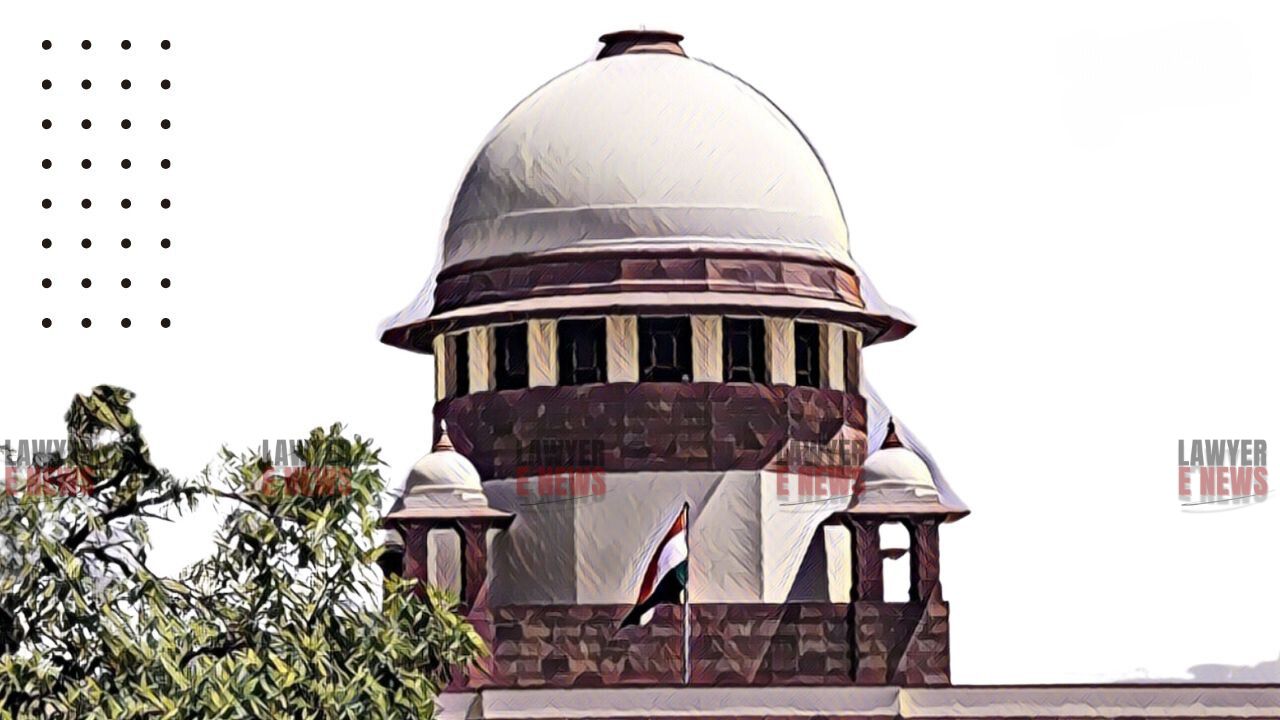-
by Admin
15 February 2026 5:35 AM



Acts Alleged Outside Purview of Official Duty Do Not Require Sanction Under Section 197 CrPC: Supreme Court delivered a crucial ruling clarifying the scope of Section 197 of the Code of Criminal Procedure (CrPC) concerning the requirement of sanction for prosecuting public servants. Setting aside a High Court decision that had quashed proceedings for lack of sanction, the Court held that acts alleged to have been performed by public servants outside the scope of their official duties or under the guise of official actions do not require prior sanction under Section 197 CrPC. The judgment directed the Trial Court to continue the proceedings against the accused public servants, leaving the question of sanction to be determined at an appropriate stage during the trial.
This judgment provides significant clarity on the procedural safeguards under Section 197 CrPC and how courts should balance the protection of public servants with the need to prevent misuse of power.
The central issue in this case was:
"Whether the CJM, Firozabad could take cognizance of Charge Sheets Nos. 3A of 2008 and 30 of 2009 without sanction under Section 197 CrPC, in relation to alleged acts of registering a false case under the Excise Act, purportedly in the discharge of official duty?"
Section 197 CrPC protects public servants by barring courts from taking cognizance of offences allegedly committed by them in the discharge of their official duties without prior sanction from the appropriate authority. However, the protection is qualified:
The alleged act must have a reasonable connection with the discharge of official duties.
If an act is merely a cloak for misconduct or beyond the scope of duty, no sanction is required.
The Court emphasized:
"It is the 'quality' of the act that determines the applicability of Section 197 CrPC. The provision should not be abused to shield illegal or mala fide acts of public servants that have no connection with their official duties."
The judgment consolidated principles from precedent into the following key tests:
Reasonable Nexus Test: There must be a reasonable connection between the act and the discharge of official duty. The accused must plausibly claim that the act was done as part of their official functions.
Quality of the Act: The official capacity should not merely provide an opportunity to commit the act; the act itself must be integrally connected to the official function.
Prima Facie Examination of Evidence: Courts may defer the sanction decision until the trial if the nature of the act is unclear.
The appellant alleged that the respondents—police officials—had registered a false FIR under Section 34 of the Excise Act at Murar Police Station, Gwalior, on October 12, 2007, to fabricate an alibi for Ashok Dixit, the main accused in the appellant's brother’s murder.
The appellant’s brother was shot dead at 8:30 AM in Firozabad, Uttar Pradesh, while the fabricated FIR claimed Ashok Dixit’s arrest at 9:30 AM in Gwalior, Madhya Pradesh—160 km away.
A trial court had convicted Ashok Dixit for the murder, observing that the Excise Act case was concocted to create a false defense.
The CJM, Firozabad, took cognizance of the conspiracy charges against the respondents in Case Nos. 67 of 2008 and 67A of 2009, based on charge sheets alleging the fabrication of the false FIR.
The High Court quashed the proceedings, holding that cognizance was barred without sanction under Section 197 CrPC.
The appellant challenged the High Court’s decision, arguing that:
Registering a false FIR cannot be deemed an act in the discharge of official duty.
No sanction is required for acts beyond the official capacity of public servants.
The Court held that filing a false FIR to create an alibi for a murder accused does not fall within the ambit of official duties of police officers:
“It can never be part of a police officer’s duty to lodge a false FIR or fabricate evidence. Such acts, if proven, would amount to abuse of public office, not its discharge.”
Respondent No. 1: The Court noted that Respondent No. 1 was not even posted at the concerned police station during the registration of the false FIR. Hence, no question of sanction arose for him.
Respondents Nos. 3, 4, and 5: The Court observed that if the allegations of collusion and fabrication of the FIR were proven, no sanction would be required since these acts would be beyond their official duties.
The Court noted that the statements under Section 161 CrPC, relied upon by the appellant to implicate the respondents, were not substantive evidence. It left the determination of their credibility to the trial court.
The Court held that the High Court erred in quashing the proceedings at a preliminary stage, particularly when the case involved serious allegations of abuse of public office:
“In cases where there is legitimate doubt about whether sanction is required, trials must proceed, and courts must avoid prematurely staying or quashing criminal proceedings.”
Directions of the Supreme Court
Proceedings to Continue: The criminal proceedings in Case Nos. 67 of 2008 and 67A of 2009 before the CJM, Firozabad, were directed to continue.
Sanction to Be Decided During Trial: The question of sanction under Section 197 CrPC for Respondents Nos. 3, 4, and 5 was left open to be decided by the trial court based on evidence.
Expedited Trial: The trial court was directed to conclude the proceedings within one year.
No Sanction for Respondent No. 1: The Court ruled that no sanction was required for Respondent No. 1, as he was not acting in any official capacity concerning the alleged acts.
The Supreme Court clarified that public servants cannot misuse Section 197 CrPC to shield illegal acts committed outside their official duties. It emphasized that courts must balance the protection of honest public servants with ensuring accountability for misuse of office.
This judgment serves as a critical precedent for interpreting Section 197 CrPC, reinforcing the principle that public duty cannot be a cover for misconduct.
Date of decision : December 13, 2024
